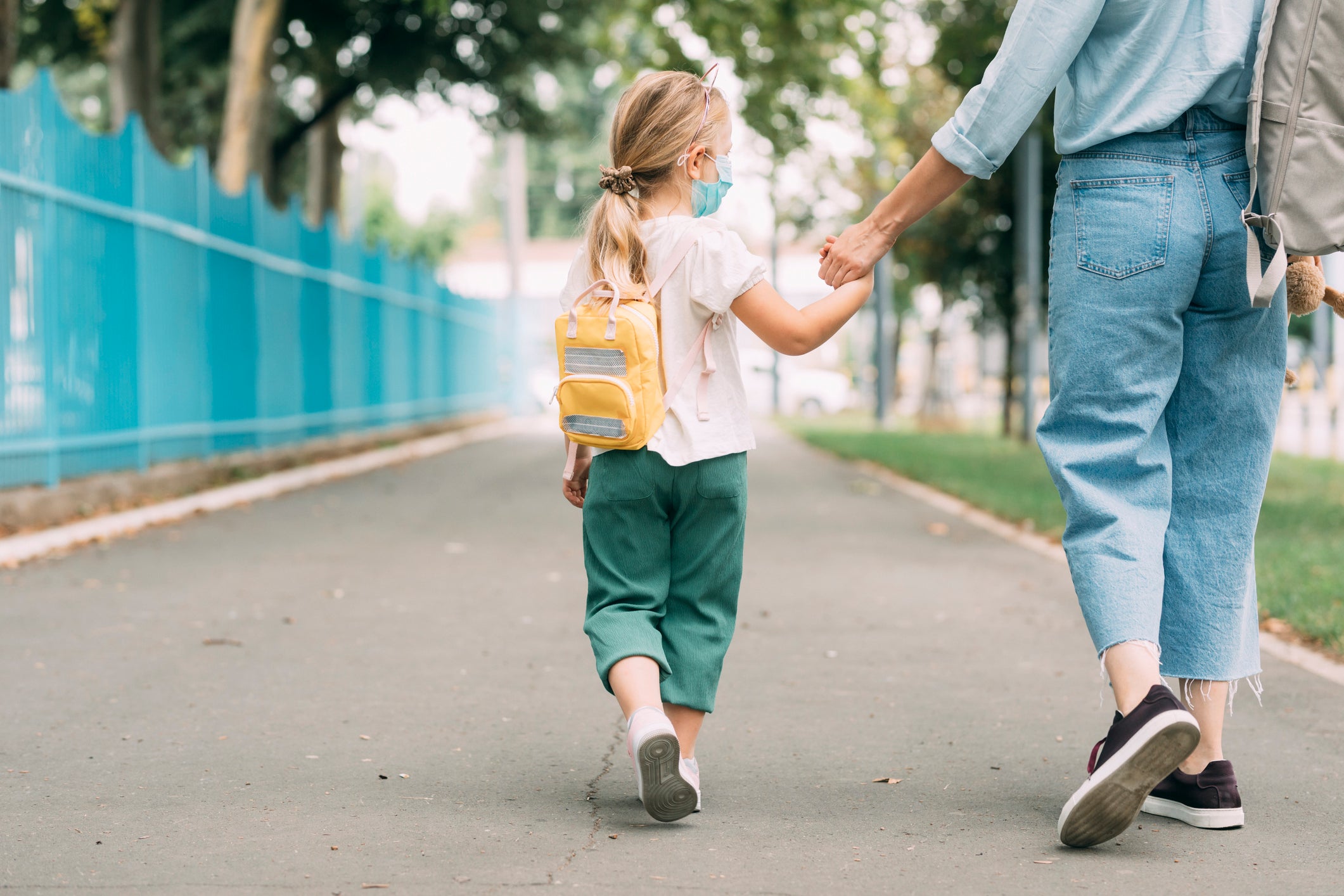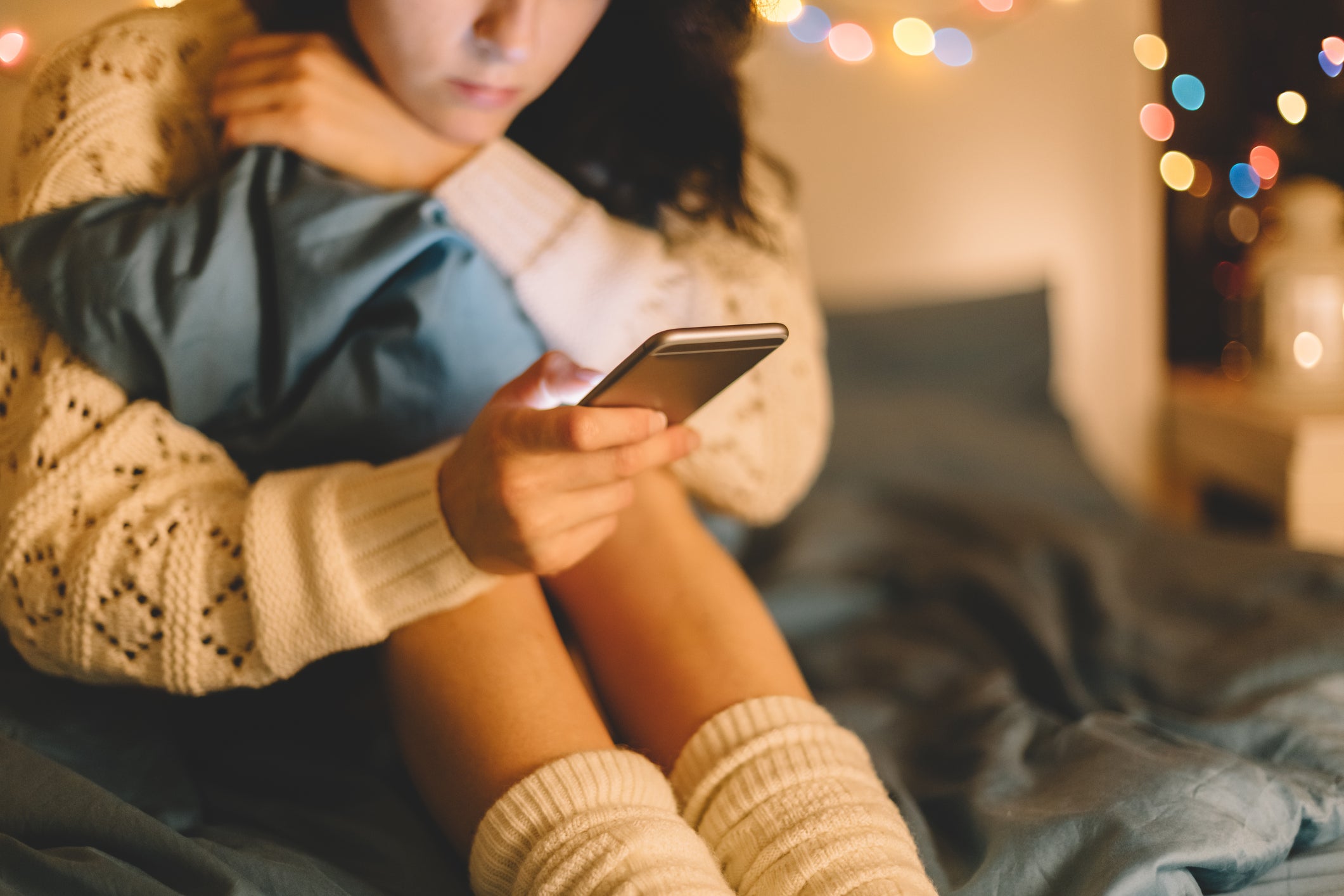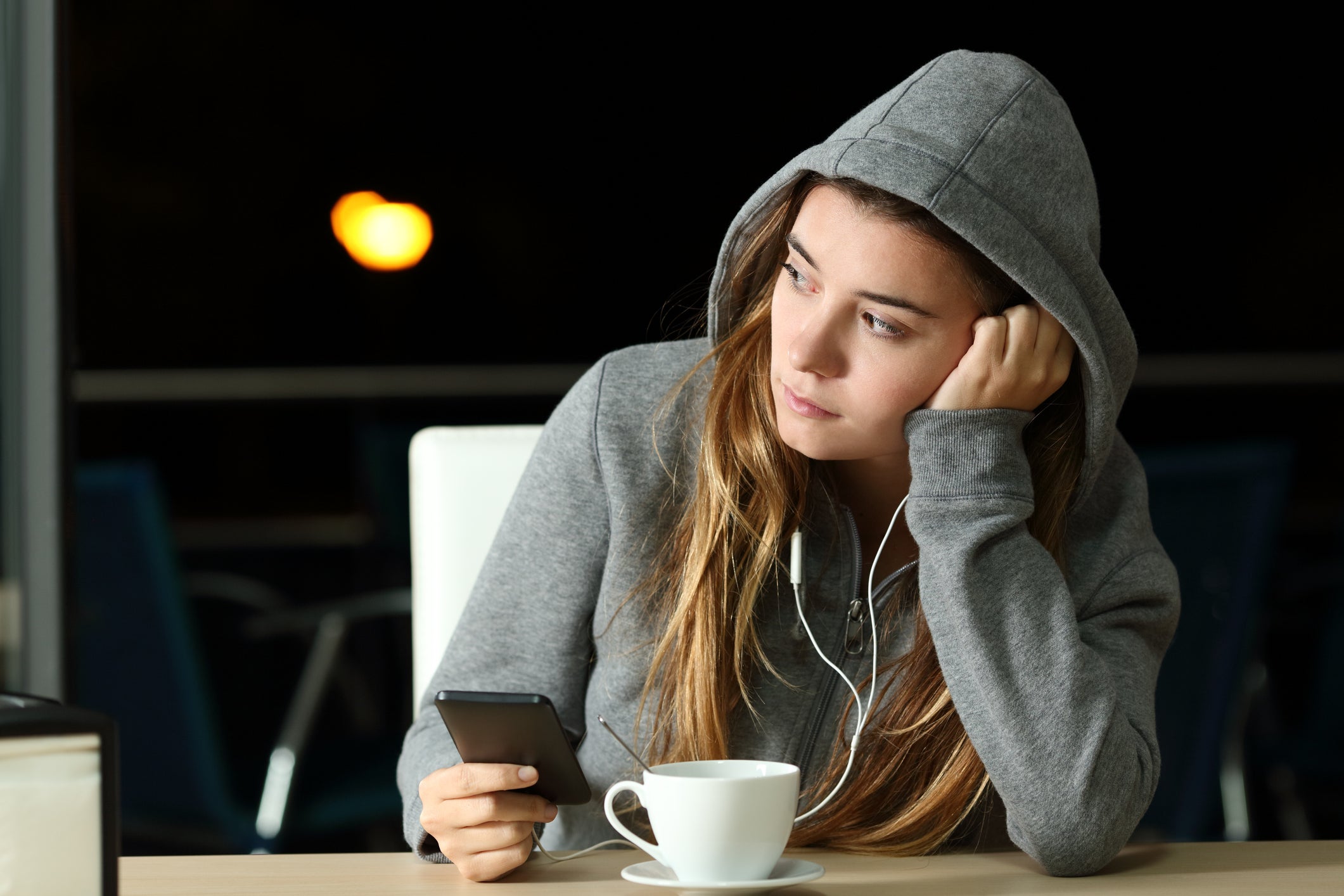‘I’ve had to give up everything that made me me’: The pain of parenting a child with mental illness
When your child suffers from mental ill health, the impact can be debilitating. Hannah Fearn meets the mothers trying to hold it all together


It was during a recent family trip to Dorset that Alison Miller first realised her daughter was severely ill. As the family were having lunch at a gastropub by the coast the then 13-year-old excused herself and hadn’t returned a while later. Miller, from southeast London, slipped into the women’s toilets to look for her and found the teenager cowering in a cubicle. “She was sitting on the floor, screaming and rocking because somebody had activated the hand dryer.”
The mother of two says that before the pandemic, her daughter was a confident high-achiever. Within months of lockdown, she had become beset by anxiety and extreme phobias. Now 15, her daughter suffers with symptoms of severe mental illness including dissociation, hearing voices and developmental regression. “My once capable, independent, intelligent young woman is a wreck. I can’t let her pop to the shops on her own, she’s so vulnerable now,” Miller tells The Independent.
Dealing with her daughter’s illness has radically changed Miller’s life and in turn sparked her own mental health struggles. “If she has a bad day, I fall so hard. Your wellbeing is tied up in what’s going on with them. My anxiety and stress levels were through the roof, I didn’t sleep in forever and I was up at 3am on the phone to the Samaritans saying I don’t know how to help her. I don’t recognise my own life. I’ve had to give up everything that made me me.”
Then there’s the grief. “The feeling of powerlessness, that something terrible is happening and you have no control over it, and there are no easy solutions to it, is really depressing and painful. There’s this grieving process of coming to terms with the loss of the child you have,” Miller says. Her daughter is now receiving therapy and drug treatment, but the effect her condition has had on family life has been palpable.
The impact on parents whose children are struggling with mental health conditions is rarely discussed. And yet, the adage that a parent can only ever be as happy as their unhappiest child feels increasingly pertinent. With child mental health at an all-time low, due to the effects of the coronavirus pandemic and lockdowns on their development and socialisation, the connection is becoming more apparent than ever. Parents who are looking after increasingly unwell children are seeing their own mental health deteriorate, reporting symptoms of depression, anxiety and detachment that they have never experienced before.

It’s inevitable that a child’s mental health is affected by the wellness of their parents – the mood in the home and the ability of a mother or father to parent well has a profound impact – but new research from the University of Waterloo in Canada has demonstrated how that relationship is even more likely to run the other way. Dillon Browne, professor of clinical psychology at the university and lead author of the study on families and mental health during the pandemic, found that parents actually react negatively towards a child struggling with their mental health. “Struggles with mental health among families exacerbate each other in a feedback loop,” he explains. “Our study suggests that the direction of influence appears to go from the child’s mental health to parenting, not parenting to child mental health.”
The finding raises huge questions for parents who are reporting their own struggles as a result of suddenly, often unexpectedly, raising a child experiencing psychological crisis.
Andrea*, 45, from Cambridgeshire, said she had experienced huge pressure on her mental health and that of her whole family, because of the changes she had witnessed in her 14-year-old daughter, which had been exacerbated by lengthy waiting lists for NHS mental health support.
“My daughter has gone from a happy teen to anxiety, self-harm, suicide attempts and now school refusal – in just a year,” she says. “Some of this may be normal teen stuff, but either way her family is at sea. It affects every waking moment of my life. You’re just stuck at home wondering what the hell to do and wondering if it’s just you.”
It leaves me feeling tearful and beaten. It’s hard to break the cycle
For others, the shift towards mental ill health has been more visceral. Anna Blewett, 41, from Colchester, says her 10-year-old daughter developed tics and other symptoms of anxiety during the pandemic, and it had a profound effect on her own stability. “It’s been disheartening to see my child drawn into looping anxious thoughts and worries. It sometimes feels like a quagmire that’s pulling us all in,” she says. “As a parent you worry [if] you’re doing enough to protect your child from stressors, or if you’re just caving in to them.”
Blewett says she worried about whether or not to force her daughter out of the house, on a trip to a supermarket “that’s causing her to hyperventilate and retch”, or instead to “cocoon” her to protect her from her pain, all the time doubting her own abilities as a parent. “I’m not really prone to introspection or rumination but some days it feels you can do no right, and that’s really wearing. My partner and I talk about her situation all the time. It sometimes leaves me feeling tearful and beaten. It’s hard to break the cycle.”
According to Dr Dora Bernardes, senior lecturer in clinical psychology at the University of Exeter, the family unit is a complex, interlinked system and any small change within that system will affect everyone within it. “If one person is not well, this is going to impact the whole family,” she says. “We may feel scared, worried for them, we may feel helpless as parents and rejected, and that can activate our own worries. Parents will very often feel guilty and that they are failing. They can feel a strong sense of shame.”
The parental instinct to fix a child’s problem – to “care for our cubs”, as Bernardes puts it – means that when a problem arises that cannot be simply fixed, it can leave parents feeling inadequate and becoming depressed themselves.
For Jessica*, 44, from West Sussex, whose children struggled during lockdown, in particular with getting to sleep and becoming anxious, her wellbeing declined significantly. “I developed real problems coping, and was almost suicidal at times,” she says. “I particularly noticed a social problem: paranoia that people didn’t like me, and huge social anxiety.” She chose to take antidepressants, but also uses exercise to help cope with her feelings and feel physically stronger.
The number of parents needing extra support for their own mental health is rising, according to child and educational psychologist Dr Jen Wills Lamacq, who works with school pupils and their families. Schools are reporting that the pandemic has hit parenting hard, tipping some families from just about coping to really struggling. She says a first step to addressing this issue is for parents to validate their own feelings; to admit that they are affected by their child’s illness, that it’s natural, understandable and to be expected.
As parents, we’re somehow expected to be these endless containers who handle everything that our children throw at us
“As parents, we’re somehow expected to be these endless containers who handle everything that our children throw at us,” she says. “As a parent the buck always stops with you, but over the pandemic that really was brought home to many parents. We haven’t shaken off that sense of being isolated and the horror of feeling really alone.”
For parents noticing a decline in their own wellbeing, Dr Wills Lamacq recommends three steps: noticing what events or issues in the family home trigger your own negative feelings; taking time away from children; and reaching out for support – whether that’s formal support through therapy, or the back-up of local parents or family.
After lockdown many parents – and especially mothers – got out of the habit of finding time for themselves, and this is even harder when caring for a child in mental distress. Returning to the pastimes they enjoyed before 2020 can help restore a sense of normality and calm. “These things fell out of our daily lives and it’s about being proactive in thinking about can you get them back, and doing that thing that is really hard: asking for help,” Dr Wills Lamacq says.
To deal with her own feelings, Blewett has found some successful coping mechanisms outside the home. “When home feels like such an eggshell walk I take solace in simple physical work: thwacking into weeds at the allotment; heaving the contents of the compost bin out and relayering it; going for a run,” she explains. She has also found support in talking to friends, both with and without children, about what she is experiencing.
Dr Maria Loades, a senior lecturer in psychology at the University of Bath, recommends parents under pressure “get the basics right first”: eating well, getting as much sleep as possible and doing some form of physical activity every day. Therapy is also encouraged to help understand and manage their emotions. This is easier to do today as there are so many free resources online, such as the guide for parents produced by Emerging Minds at the University of Oxford.

There’s something else to consider, too: how dangerous it is to merge adult feelings with those of their children. According to counsellor Louise Tyler, modern parents have become “enmeshed” with their children – a process that she considers has gone too far with parents “kind of climbing into their distress with them”, she says. The answer is not to disengage, she says, but to find a “happy medium”.
Being open about the effect that living with a child facing mental illness can have on a parent has also been a source of comfort and reassurance.
For Miller, a parenting course called Family Connections was a “game-changer”. It helped her to accept that her daughter, and her own life, had changed – but that didn’t mean happiness could not return for both of them. She also found support online through other parents facing the same challenges, as part of the Facebook group Parenting Mental Health.
The group’s membership doubled from 2019 to 2020, and again from 2020 to 2021. Across the course of the pandemic it has grown from 6,000 to 25,000 members. When its members were asked what helped to gain a sense of perspective and establish their own mental health, the majority said finding comfort and empathy online via a peer support group. Members also recommended talking openly to friends and family, time away from the family home, acts of self-care and spending time alone.
Being open has certainly helped for Miller. “The more I’ve opened up to people the more good things come my way,” she says. “That group has taught me that self-care doesn’t have to be going to the spa for a day, it can be sitting down with a cup of coffee, it can simply be saying no to something to take the pressure off yourself.”
*Name has been changed
Join our commenting forum
Join thought-provoking conversations, follow other Independent readers and see their replies
Comments
Bookmark popover
Removed from bookmarks